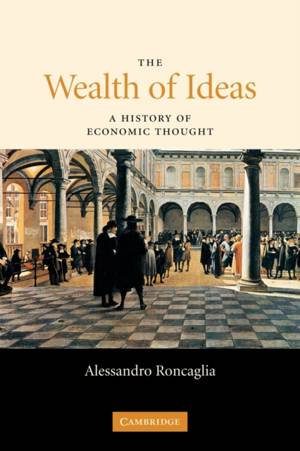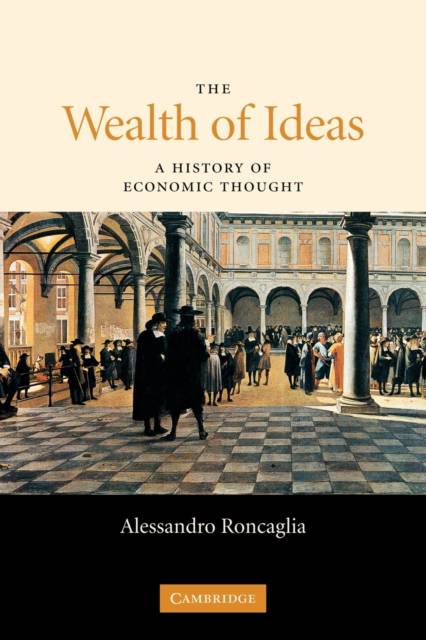
- Afhalen na 1 uur in een winkel met voorraad
- Gratis thuislevering in België vanaf € 30
- Ruim aanbod met 7 miljoen producten
- Afhalen na 1 uur in een winkel met voorraad
- Gratis thuislevering in België vanaf € 30
- Ruim aanbod met 7 miljoen producten
Zoeken
€ 40,95
+ 81 punten
Omschrijving
The Wealth of Ideas, first published in 2005, traces the history of economic thought, from its prehistory (the Bible, Classical antiquity) to the present day. In this eloquently written, scientifically rigorous and well documented book, chapters on William Petty, Adam Smith, David Ricardo, Karl Marx, William Stanley Jevons, Carl Menger, Léon Walras, Alfred Marshall, John Maynard Keynes, Joseph Schumpeter and Piero Sraffa alternate with chapters on other important figures and on debates of the period. Economic thought is seen as developing between two opposite poles: a subjective one, based on the ideas of scarcity and utility, and an objective one based on the notions of physical costs and surplus. Professor Roncaglia focuses on the different views of the economy and society and on their evolution over time and critically evaluates the foundations of the scarcity-utility approach in comparison with the Classical/Keynesian approach.
Specificaties
Betrokkenen
- Auteur(s):
- Uitgeverij:
Inhoud
- Aantal bladzijden:
- 598
- Taal:
- Engels
Eigenschappen
- Productcode (EAN):
- 9780521691871
- Verschijningsdatum:
- 25/12/2006
- Uitvoering:
- Paperback
- Formaat:
- Trade paperback (VS)
- Afmetingen:
- 152 mm x 229 mm
- Gewicht:
- 816 g

Alleen bij Standaard Boekhandel
+ 81 punten op je klantenkaart van Standaard Boekhandel
Beoordelingen
We publiceren alleen reviews die voldoen aan de voorwaarden voor reviews. Bekijk onze voorwaarden voor reviews.











